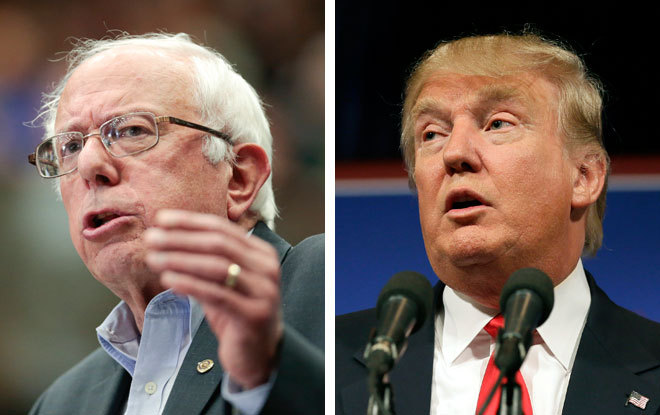On the afternoon of May 27, 2015, single-payer advocates including myself watched as the New York State Assembly voted overwhelmingly (89-47) in favor of the New York Health Act. This marked an important occasion, as this statewide universal healthcare bill had not been voted on in the Assembly since 1992. This event highlights the rare, intermittent successes that come from repeated lobbying and advocacy. However, the bill faces a significant uphill battle in passing the Republican-controlled State Senate.
On December 17, 2014, Governor Peter Shumlin of Vermont announced that the state would abandon its plan to implement Green Mountain Care, a similar single-payer system. In a recent New England Journal of Medicine article, John E. McDonough wrote: “Despite differing projections, all three studies showed that single payer was economically feasible. In reality, the Vermont plan was abandoned because of legitimate political considerations.” McDonough indicated several key factors that increased doubt regarding the potential effectiveness of this implementation: public disagreement over single payer, failure in educating the public, legislator indecision and a poor Affordable Care Act (ACA) exchange launch in VT.

These experiences in New York and Vermont highlight the heterogeneity of state progress towards single-payer, but also underscore the current political barriers to state-level reform efforts. In 2016, the gubernatorial election in Vermont and State Senator elections in New York represent important routes in which single-payer reform could gain potential. Further, there are potential opportunities for ballot measures in states such as Oregon and Colorado, yet these appear likely to be pushed beyond 2016.
This focus on state-level actions continues to be important in the single-payer movement, but the 2016 elections represent a critical period for the re-emergence of a federal-level focus on single-payer. This attention, however, parallels discussions that are largely focused on responding to the ACA and recent King v. Burwell decision. This has introduced new challenges to passage of single-payer legislation, yet arguably made it more relevant than ever. While a stronger emphasis has been placed on improving Obamacare, a majority of media coverage has concentrated on proposed solutions to repeal and replace this system.
In this political atmosphere, most Republican candidates continue to offer nonsense solutions, speaking broadly about discarding Obamacare and promoting a greater role of the free market. These proposed “solutions” have highlighted a general lack of understanding of health systems. In the first GOP debate on August 6, there seemed to be two key exceptions: John Kasich and Donald Trump. Ohio Governor Kasich did not focus on repealing the ACA, but instead utilized a state-level perspective to discuss expansion of Medicaid. Trump, who has previously stated his support for single-payer, arguably showed the greatest knowledge of any candidate on health systems. When called out by other candidates, Trump defended his support for single-payer, stating its success and effectiveness in many other countries. That said, it appears that Trump doubts the current role of single-payer in the US and is advocating for “a private system without the artificial lines around every state.” As Wendell Potter points out in a recent Huffington Post article, this idea has numerous flaws in its logic and would likely lead to increased premiums and higher administrative costs. If what Trump desires is a merger of the large insurance companies into one, this would also result in many consequences. Dr. David Himmelstein, PNHP co-founder, stated that this merger would “leave us with a small handful of insurance giants that are essentially monopolies.”
On the Democratic side, there (fortunately) has not been a focus on proposing ill-advised solutions in place of Obamacare, yet there remains a clear divide between candidates’ views. Bernie Sanders has made single-payer a central part of his platform, stating that “if we are serious about providing high-quality, affordable care as a right for all Americans, the only solution to this crisis is a Medicare-for-all single-payer system.” Sanders underscored his support for single-payer at a July 30 rally on Capitol Hill in honor of Medicare’s 50th anniversary. Unlike most GOP candidates, Bernie acknowledges the benefits gained from Obamacare, but believes single-payer is the only real solution. Hillary Clinton has also included healthcare in her platform, but with a different approach. In her “Four Fights” policy agenda, she broadly discusses her plan to “defend the Affordable Care Act and reduce health costs.” Clinton hopes not to replace Obamacare but to slow rising costs, deliver better care and “ensure that the savings from those reforms benefit families – not just insurance companies, drug companies and large corporations.” She also wishes to improve the nation’s focus to mental health issues. Martin O’Malley seems to hold a similar position to Clinton. After the King v. Burwell ruling, O’Malley stated that “we must continue to build and improve upon this hard-won progress. With the national goal of universal coverage now affirmed, we must reduce costs by improving wellness.” Stemming from his experience as Governor of Maryland, his desired focus lies on improved care coordination, personalized medicine and alignment of profit incentives to promote wellness.
While Bernie Sanders is the only candidate who appears to directly fight for implementation of a single-payer system (at the moment), there remains a clear focus on healthcare system improvement in the 2016 election campaigns. As single-payer advocates, we know that the best way to “repeal and replace” the ACA remains the implementation of single-payer. On the state and local levels, it is vital that we work to campaign, endorse and vote for politicians who will work towards this ideal. On the federal level, it is critical that we continue to challenge candidates on these issues, scrutinize their views on single-payer, and continue to promote healthcare as a principal debate topic. The upcoming presidential election represents a crucial moment for single-payer to move closer to the forefront of U.S. politics than ever before.
Michael Zingman is a MPH student at Columbia University Mailman School of Public Health.
